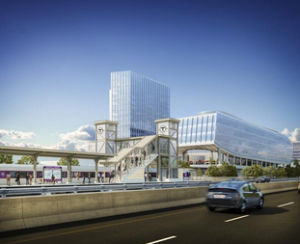A current hot topic in the media is the growing gap between CEO and average workers’ salaries. In Massachusetts, the average CEO made 97 times the average worker’s salary. This data comes from “Executive Paywatch: High Paid CEOs and the Low Wage Economy,” published by the American Federation of Labor and Congress of Industrial Organizations (AFL-CIO). The study notes that runaway CEO salaries are fueling economic inequality, highlighted by findings that the average worker in Massachusetts made less than $50,000 a year in 2013 compared to the average CEO, who made almost $5 million in that same period.
National statistics show that the average CEO-to-worker pay ratio in 2013 was 331 to 1, and the CEO-to-minimum-wage-worker pay ratio was 771 to 1. Massachusetts has six CEOs on the AFL-CIO’s Top 100 CEO Pay list. The top paid CEO in Massachusetts was Hari Ravichandran of Endurance International Group Holdings. His total compensation in 2013 amounted to over $52 million, which is 1490 times the average American worker’s pay. The second highest paid CEO was Trip Advisor‘s Stephen Kaufer. He received almost $40 million in 2013, 1107 times the average American worker’s pay.
The AFL-CIO report opined that the current ratio of CEO-to-worker pay is simply unconscionable. However, not everybody agrees. Mike Stenhouse is the head of the think tank Center for Freedom and Prosperity. Stenhouse commented that wage disparities naturally increase in a depressed economy. This is because there is a decreased amount of middle-class jobs available, which lowers the average income for all. Therefore, free-market CEO compensation should be of no concern to taxpayers.
The AFL-CIO actively supports raising the federal minimum wage to over $10/hour, claiming it offers a simple way to repair the weak economy, boost consumer spending, and increase the purchasing power of low-wage workers. Nevertheless, critics still feel that raising the minimum wage will only force businesses to either raise prices, lay-off workers, reduce hours, or use more automation.
The following is a list of the Top CEO Salaries in Massachusetts:
#50. Nigel Travis –
Dunkin’ Brands Group, Inc., Canton: $4,206,643
#49. Michael R. Minogue –
Abiomed Inc., Danvers: $4,606,673
#48. Michael A. Bradley –
Teradyne, Inc., North Reading: $4,845,964
#47. P. James Debney –
Smith & Wesson Holding Corp., Springfield: $4,873,237
#46. Peter R. Chase –
Chase Corp., Bridgewater, MA: $4,891,223
#45. Scott A. Buckhout –
Circor International Inc., Burlington: $5,008,416
#44. Michael K. Simon –
Logmein, Inc., Boston: $5,138,234
#43. Louis Hernandez, Jr. –
Avid Technology, Inc., Burlington: $5,229,014
#42. Linda K. Zecher –
Houghton Mifflin Harcourt Co., Boston: $5,236,252
#41. Frederick H. Eppinger –
Hanover Insurance Group, Inc., Worcester: $5,237,208
#40. Josef H. Von Rickenbach –
Parexel International Corp, Waltham: $5,519,080
#39. David Aldrich –
Skyworks Solutions, Inc., Woburn: $5,800,648
#38. Harvey J. Berger, M.D. –
Ariad Pharmaceuticals Inc., Cambridge: $5,872,437
#37. Brian Concannon –
Haemonetics Corp., Braintree: $5,977,595
#36. Vincent T. Roche –
Analog Devices Inc., Norwood: $6,090,567
#35. Mark S. Casady –
LPL Financial Holdings Inc., Boston: $6,137,333
#34. John M. Maraganore, Ph.D. –
Alnylam Pharmaceuticals, Inc., Cambridge: $6,236,122
#33. Patrick M. Prevost –
Cabot Corp., Boston: $6,309,405
#32. James Heppelmann –
PTC Inc., Needham: $6,502,968
#31. Robert F. Friel –
PerkinElmer Inc., Waltham: $6,511,991
#30. Michael Bonney –
Cubist Pharmaceuticals Inc., Lexington: $6,606,945
#29. Marc Beer –
Aegerion Pharmaceuticals, Inc., Cambridge: $7,036,536
#28. James C. Foster –
Charles River Laboratories International Inc., Wilmington: $7,041,418
#27. Alan J. Herrick –
Sapient Corp., Boston: $7,154,464
#26. Michael G. Kauffman, M.D., Ph.D. –
Karyopharm Therapeutics Inc., Newton: $7,335,194
#25. F. Thomson Leighton –
Akamai Technologies, Cambridge: $7,631,578
#24. Thomas J. May – Northeast Utilities, Springfield: $7,660,999
#23. Jonathan Bush –
Athenahealth, Inc., Watertown: $8,027,133
#22. Leo Berlinghieri –
MKS Instruments, Andover: $8,030,721
#21. Harlan F. Weisman, M.D. –
Coronado Biosciences Inc., Burlington: $8,176,551
#20. Ron Zwanziger –
Alere Inc., Waltham: $8,176,723
#19. Christopher Garabedian –
Sarepta Therapeutics, Inc., Cambridge: $9,701,492
#18. William L. Meaney –
Iron Mountain Inc., Boston: $9,766,616
#17. Ronald L. Sargent –
Staples Inc., Framingham: $10,767,880
#16. Michael F. Mahoney –
Boston Scientific Corp., Marlborough: $10,851,430
#15. James D. Taiclet, Jr. –
American Tower Corp., Boston: $12,221,026
#14. Joseph M. Tucci –
EMC Corp., Hopkinton: $12,645,957
#13. Jeffrey M. Leiden –
Vertex Pharmaceuticals Inc., Boston: $13,126,474
#12. Philip M. Pead –
Progress Software Corp., Bedford: $14,239,235
#11. George A. Scangos –
Biogen Idec Inc., Cambridge: $15,015,147
#10. Joseph L. Hooley –
State Street Corp., Boston: $15,841,234
#9. Marc N. Casper –
Thermo Fisher Scientific Inc., Waltham: $16,168,880
#8. William H. Swanson –
Raytheon Company, Waltham: $17,146,254
#7. Paul A. Ricci –
Nuance Communications, Inc., Burlington: $17,939,756
#6. Sean M. Healey –
Affiliated Managers Group, Inc., Beverly: $20,007,855
#5. Carol Meyrowitz –
TJX Companies Inc., Framingham: $22,514,033
#4. Mortimer B. Zuckerman –
Boston Properties Inc., Boston: $23,821,829
#3. Stephen P. Macmillan –
Hologic, Inc., Bedford: $24,458,289
#2. Stephen Kaufer –
Tripadvisor, Inc., Newton: $39,014,227
#1. Hari Ravichandran –
Endurance International Group Holdings, Inc., Burlington: $52,518,620






 The station is estimated to cost approximately $20 million ($4 – $6 million more than the original projected cost) and is being financed by New Boston Landing LLC, a New Balance development company. It will provide service to employees of the well-known shoe company, and direct access to the company’s
The station is estimated to cost approximately $20 million ($4 – $6 million more than the original projected cost) and is being financed by New Boston Landing LLC, a New Balance development company. It will provide service to employees of the well-known shoe company, and direct access to the company’s 
